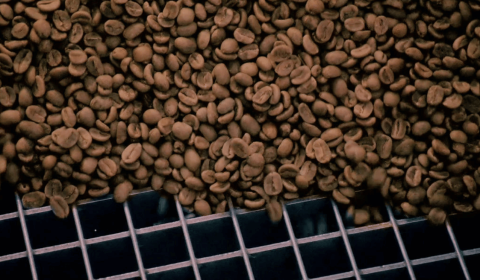Veolia and JDE - turning spent coffee grounds into bio-fuel
In Joure (NL) the Jacobs Douwe Egberts (JDE) plant uses spent coffee grounds as a bio-fuel to produce the steam needed for its production process.
The plant requires a huge amount of steam to produce its 12 million kilos of coffee annually. To generate the steam, it normally uses natural gas - a costly fossil fuel with limited reserves.
JDE wanted to increase its coffee production, but simultaneously reduce its carbon footprint. To meet this challenge, Veolia and JDE have come up with a solution: replacing natural gas with spent coffee grounds. Roasting coffee beans produces a large amount of residue, which was previously sent to landfill. Nowadays, this residue is kept and can be used to generate steam for operating the plant.
The Veolia team spent three years developing a biomass boiler fueled only by spent coffee grounds. The installation employs a unique drying and combustion system. JDE is now using its own coffee waste to produce... coffee! A genuine short circuit circular loop.
The story does not end here! Biogas is also extracted from the on-site wastewater treatment plant. It is the first back-up fuel source to cover peak moments.
- The boiler has helped JDE avoid generating 14.000 tons of CO2 annually, equivalent to a 70% reduction in its annual emissions.
- The plant has saved 1 million euros on its energy bill. The project has saved the use of natural gas for an equivalent of 2 000 households.
- No more spent coffee grounds need to be transported off site as JDE can use all of them to produce steam.
- Now JDE is also improving its production process and aims to extract more coffee from each coffee bean.

